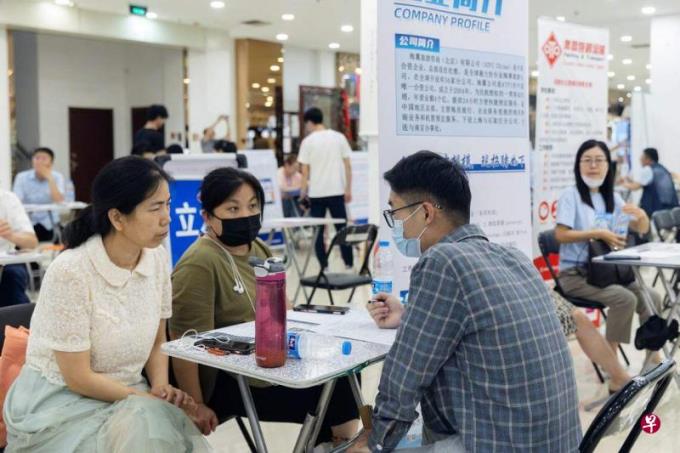
The National Bureau of Statistics of China released the June Purchasing Manager Index (PMI) on Friday (June 30). In June, the manufacturing industry rose slightly to 49, which is still below the Rongyu line; non -manufacturing PMI dropped from 54.50 in May in MayTo 53.2, the expansion speed slowed down significantly.
In June, PMI data highlighted that under the continuous contraction of external demand, China urgently needed to launch more measures to boost domestic demand and maintain economic recovery momentum.Scholars of interviewees said that the Chinese economy is currently in the transitional stage from compensation to comprehensive recovery.After the compensation recovery is released, the subsequent recovery also depends on the comprehensive results of various policies such as employment and residential income, and it takes time to achieve results.
The data released by the National Bureau of Statistics on Friday shows that in June, non -manufacturing PMI fell from 54.50 in May to 53.2, writing the minimum level since China abandoned the epidemic prevention and control at the end of last year.
Zhang Liqun, a researcher at the Development Research Center of the State Council, told the United Morning Post that the consumption demand of Chinese people has shrunk, and the important reason is that the economic fall of the past ten years has affected the income of residents. Coupledinsufficient.
The official procurement manager index reflecting the prosperity of China's manufacturing industry rose slightly from 48.8 last month to 49.0 last month, in the contraction range for three consecutive months.
Zhang Liqun believes that in June, the manufacturing PMI has built back, and the government investment has begun to appear. Although the effect is not significant, the signs are very positive."" ".
Zhao Xijun, a professor at the School of Finance and Finance of Renmin University of China, said in an interview that in June, the PMI of the manufacturing industry was still below the Wutu Line, indicating that the economic recovery was under great pressure.
After the Chinese economy rebounded in the first quarter of this year, it gradually lost its power to recover. After the weak economic data in May was announced, several financial institutions have lowered China's economic growth forecast.Among them, Goldman Sachs lowered the expected GDP growth from 6.0%to 5.4%, and Nomura Holdings was reduced from 5.5%to 5.1%.
Zhao Xijun said that China's economic recovery has shown an upward momentum, but it has not reached the ideal recovery state. It is necessary to further take measures to stabilize the foundation of recovery.
Chinese Prime Minister Li Qiang's speech on Tuesday (27th) was reiterated at the World Economic Forum Summit held at Tianjin that Beijing will take measures to boost demand.
On Thursday (29th), the State Council executive meeting of the State Council stimulated home consumption measures to drive residents' consumption growth and economic recovery.The industry believes that this measure provides key support for the downstream industrial chain of the real estate.
Zhao Xijun said that the Chinese government has implemented some measures in the real estate field, but "the current approach is to solve and improve housing demand, not to encourage funds to speculate."
For example, the government encourages more cities and financial institutions to expand more in housing leasing to provide housing for young people, especially new citizens entering the city from the countryside. "Can be rented. "
…


